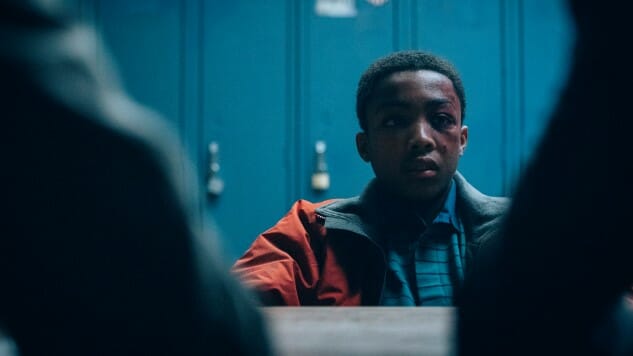You Cannot Look Away from the Masterful When They See Us
Atsushi Nishijima/Netflix
Antron McCray. Kevin Richardson. Yusef Salaam. Raymond Santana. Korey Wise.
I will admit that up until When They See Us, Ava DuVernay’s searing four-part miniseries premiering this Friday on Netflix, I knew these men as only the “Central Park Five.” That they were, to me, first the perpetrators of a horrific crime and later exonerated victims of a rigged legal system.
But still, I’m embarrassed to admit, in my youth, I didn’t really think about the circumstances that led to their convictions or all the lives that were impacted by a corrupt police investigation.
You cannot look away from When They See Us or shelter yourself from the blinding truth. The harrowing episodes will leave you devastated but also in awe of how McCray, Richardson, Salaam, Santana and Wise came out on the other side of what happened to them and are leading happy, productive lives today.
On April 19, 1989, 28-year-old Trisha Meli was jogging in Central Park when she was brutally raped and left for dead. In a coma for 12 days, Meli had no memory of what happened to her and was unable to identify her attacker or attackers. The series doesn’t shy away from the horrors of what happened to Meli. A successful white woman left for dead in America’s most famous public space did not sit well with New York City. Everyone—the mayor, the district attorney, the police department—wanted her attackers caught.
But somewhere along the line, Manhattan District Attorney Linda Fairstein (Felicity Huffman, in her first post-scandal role) and NYPD detectives lost sight of wanting to find the actual criminal and decided to solve the crime by any means necessary. For hours, the five boys were interrogated without their parents present. They were beaten. They were denied food and sleep. And, perhaps most egregiously, they were told if they said what the police wanted to hear, they could go home. “You give something, you get something,” a detective tells Raymond (Marquis Rodriguez). When family members were allowed to see the boys, they were often unknowingly complicit in what was happening. Detectives not-so-subtly threaten Anton’s father Bobby’s (Michael Kenneth Williams) job. “You’ve got to say what they want you to say,” Bobby tells Anton (Caleel Harris). Kevin’s sister Angie (Kylie Bunbury) signs Kevin’s confession because a crying, beaten Kevin (Asante Blackk) tells her he just wants to go home and she thinks complying will get him that.
The five boys were convicted with no DNA evidence, no blood evidence, no fingerprints. There was absolutely nothing to tie them to the crime. It was stunning to me that only Yusef (Ethan Herisse) and Korey (Jharrel Jerome) knew each other before this. The boys were given the names to use during their confessions.
-

-

-

-

-

-

-

-

-

-

-

-

-

-

-

-

-

-

-

-

-

-

-

-

-

-

-

-

-

-

-

-

-

-

-

-

-

-

-

-








































